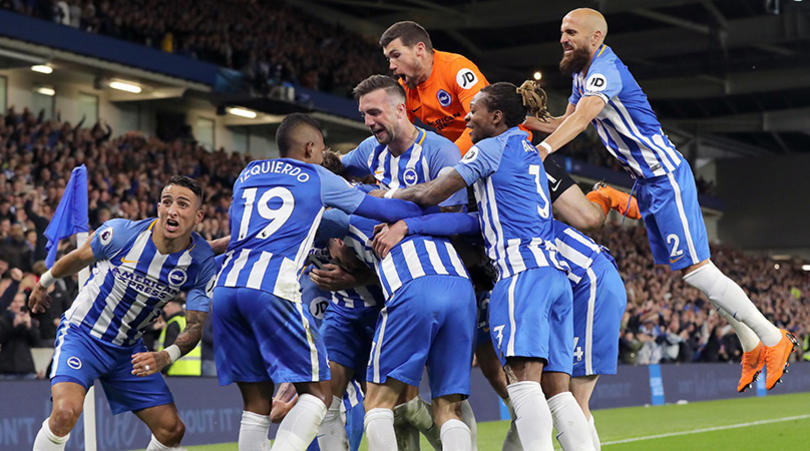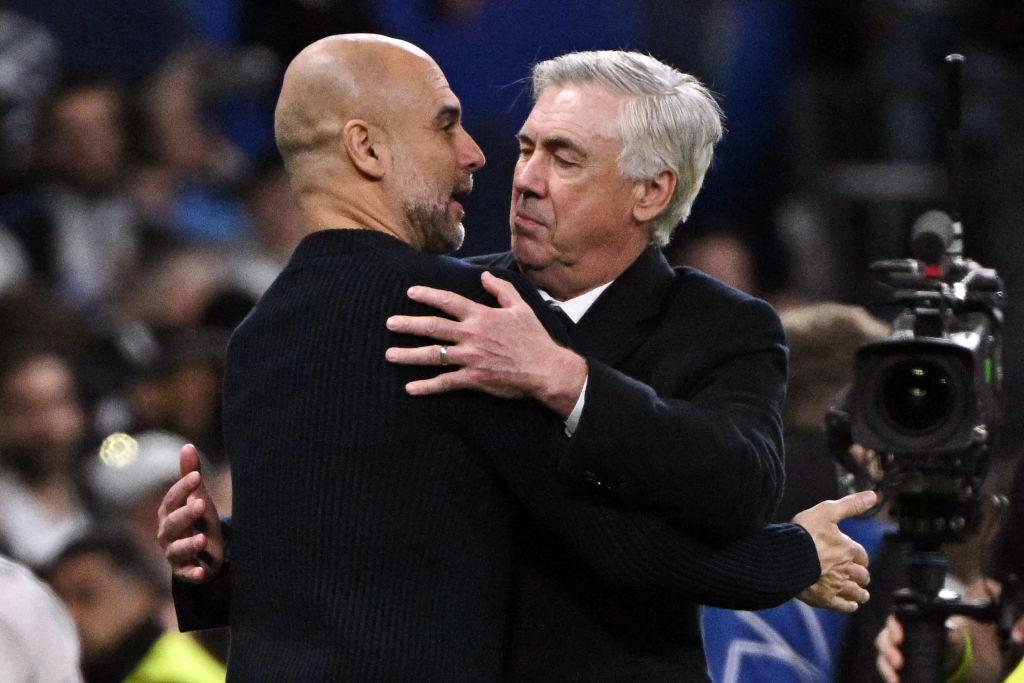Why Jonjo Shelvey DOES deserve a place in England's World Cup squad
The Newcastle playmaker isn’t perfect, but the Three Lions need his invention if they're to avoid failings of the past, argues Seb Stafford-Bloor

You could spend a lot of time just watching Jonjo Shelvey; the way he moves, the way he plays the game. He's the Premier League’s great lolloping artist.
Next time you're in a stadium when he's playing, keep your eyes on him and only him. Shelvey is an aggressive footballer. Not literally, although he has that in his repertoire too, but in the tactical sense. He never stops looking for a way to move his team forward.
That's really what makes him interesting. Shelvey is a habitual vertical passer. It makes him high-risk and occasionally a liability, but he sees angles on a pitch which many other players don't. He processes the game quickly too, plotting what to do with the ball before it arrives, then pushing team-mates into space which they themselves weren't aware of. He isn't among the finest players in the country – he probably wouldn't make a shortlist of the best 20 – but that trait does make him disproportionately valuable.
When there's a forward pass to be played, he'll find it – with a feathered tickle through the lines, maybe, or with one of those exocet diagonals.
England’s progressive problem
On Wednesday, Gareth Southgate will announce his preliminary England squad for the World Cup and you'd hope, if for no other reason than it would mean he's been paying attention, that he takes a chance on Shelvey. In relative terms, this England side has plenty of technique, but it remains cripplingly short of progressive players.
Jack Wilshere, deserving or otherwise, will probably make the cut and he operates with plenty of attacking intent, but beyond him penetration is scarce. Eric Dier and Jordan Henderson look likely to be the starting base in June, probably with Dele Alli slightly ahead, and that combination looks troublingly static.
Get FourFourTwo Newsletter
The best features, fun and footballing quizzes, straight to your inbox every week.
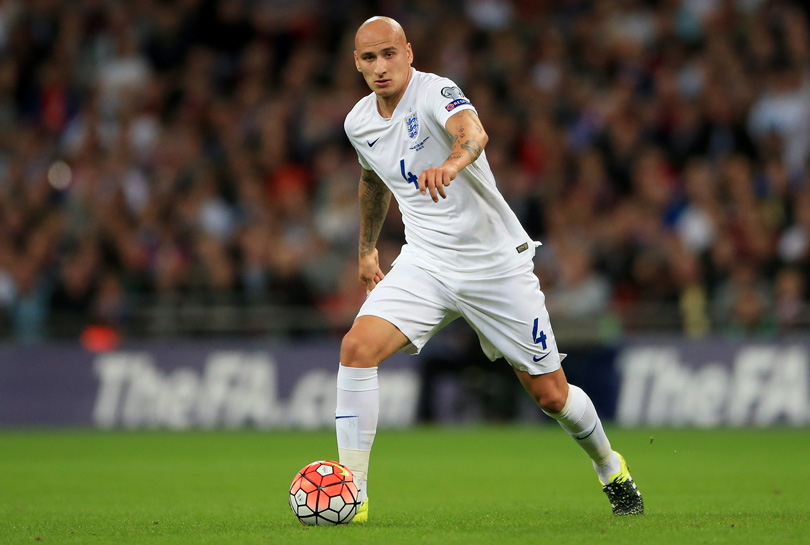
The issue that Southgate must avoid, but which Roy Hodgson ran headlong into, is that while his squad will have plenty of gifted midfield players and also several potent forwards, he possesses no real way of connecting the two. Shelvey can be that piece.
In fact, Shelvey should be that piece.
The most common mistake England make at international tournaments has its root in flawed thinking: that the very best player must be picked in every position. Notoriously, it’s what created the Lampard/Gerrard Axis Of Evil and what led to Paul Scholes spending too much of his international career out of position. It's probably also what stole 50 more caps from Michael Carrick's CV.
A pertinent case given his recent retirement, Carrick was looked down upon because of his game's simplicity. He won the ball, he moved it, he played at entirely his own speed. He was a specialist. Sir Alex Ferguson thought the world of him, Jose Mourinho thinks enough to immediately make him part of his coaching staff, but a succession of England managers disagreed.
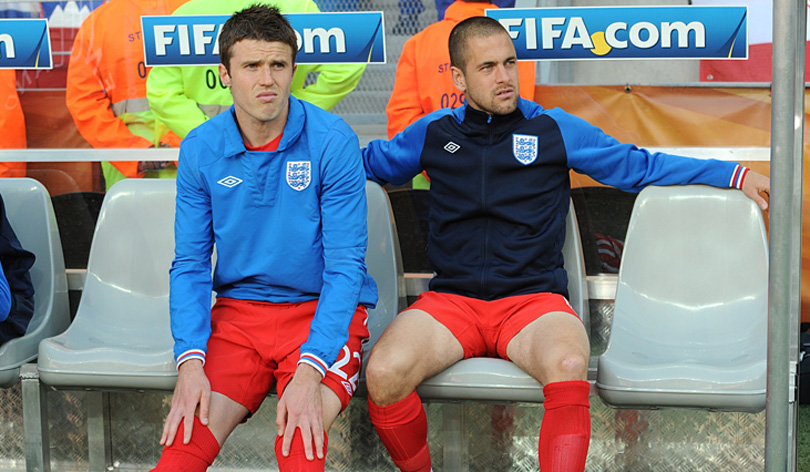
It was wrong. The right player is the one who fits the objectives and completes the circuit. After all, none of those gaudy bulbs will light up if the current doesn't actually run. Carrick and Shelvey really aren't so different; especially so in relation to the national team. One was a finer player than the other currently is (or is ever likely to become) but the arguments for their international involvement are eerily similar. The case for Shelvey, like Carrick before, depends on an unwavering belief in the importance of chemistry.
World Cup heat
Of course, there are caveats. Shelvey's behavioural issues seem to be behind him, but their memory is still fresh. He may have learned how to curb his temper in the Premier League, but the hothouse of a World Cup is another atmosphere entirely. Selecting him comes with a risk and the real possibility that he'll do something absurd at a critical moment.
It's not difficult to imagine him kicking out at a yapping opponent, for instance, particularly if the opposing manager never misses an episode of Match of the Day. Shelvey is calmer and noticeably more restrained, but he's there to be tweaked and antagonised.
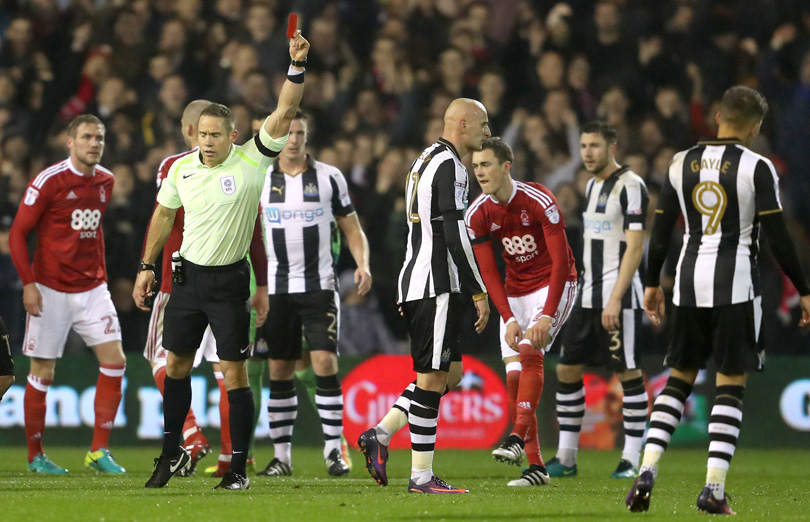
Yet he's also capable of being the other Jonjo, too – the one who lifts the first time ball beyond a defence and into the path of Jamie Vardy. Maybe the one who cuts a pass between centre-half and full-back too, springing Raheem Sterling or Marcus Rashford into that space they love.
More broadly, he's one of the few Englishmen who can be trusted to knife possession upfield five or 10 yards at a time. Lessons should be learned from before: what use are Harry Kane, Vardy, Sterling and the rest if, as at the European Championship, they never receive the ball in the right positions?
Spurs on their heels
Last week, Shelvey and Newcastle were at Wembley to face Tottenham and, although the visitors came away with nothing, he was the best player on the pitch. By some distance, too. Spurs eventually won the game but the 26-year-old was a menace, constantly turning Mauricio Pochettino's defenders back on themselves and leaving the home midfield permanently off-balance.
The way the crowd reacted to him that night was very telling. Each time he touched the ball there was anxiety and a recognition that, of all the Newcastle players, he was the one who wasn't to be given space or time. He may not have been that accurate, but the conviction in his performance made that almost incidental; he made Tottenham extremely uncomfortable.
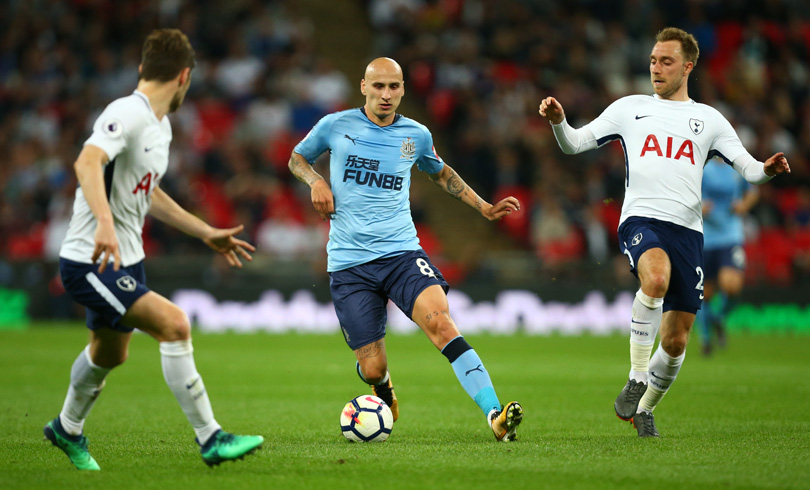
The question is what he might be able to do if complemented by a better standard of player. If the Newcastle players he'd been connecting that night had included a credible forward and a midfield partner capable of shutting the door behind him, he would have been a match-winner.
England have those players. In fact, England have so many of them that they can't all be accommodated at once.
Ultimately, it would be easy to ignore his claim for a place. If Shelvey is left out, it would hardly be a scandal and it could easily be rationalised to a fairly indifferent public. But then, wouldn't that be so typically England? Typical of now and the past. Boom and bust players have always been mistrusted, because British football is naturally conservative. It may often be played with great pace and athleticism, but the emphasis at international tournaments is generally given to avoiding defeat. How do we not lose, not how do we win.
England’s big freeze
There's a value to knowing your place in the international arena, but not much - and conquering this inferiority will be part of a better future. It's hard to prove, but one suspects that the root cause of the Iceland debacle - and the other anaemic performances two years ago - was the fear of humiliation. The entire England technical staff and squad were so concerned with avoiding defeat that they forgot football games are really there to be won.
That means sometimes picking players who have a downside. Often, it involves team selections which contain an obvious defensive weakness. And that would certainly be true here, because managers who pick double pivots tend to sleep soundly. Conversely, those who throw a wildcard into their midfield generally don't. In fact, they often wake in a cold sweat. "Don't Jonjo. No..."
Sometimes those managers overachieve, though. Sometimes those brave enough to spend lonely nights staring into the bathroom mirror have something to show when dawn breaks.
It may be a slightly finessed history involving two very different players, but the last time England truly gambled on a wildcard selection who nobody trusted was also the last time they went further than expected. Paul Gascoigne was a rare talent and Sir Bobby Robson was unusually long on conviction, but it's a seductive precedent.
Jonjo Shelvey is not Gascoigne. Neither is he Glenn Hoddle. He's not really comparable to many of the other great, overlooked mavericks of the past either. But he is something positive. He would be bold enough pick to engender the belief that England are aiming for something other than a quiet and noble elimination this summer.
Seb Stafford-Bloor is a football writer at Tifo Football and member of the Football Writers' Association. He was formerly a regularly columnist for the FourFourTwo website, covering all aspects of the game, including tactical analysis, reaction pieces, longer-term trends and critiquing the increasingly shady business of football's financial side and authorities' decision-making.
